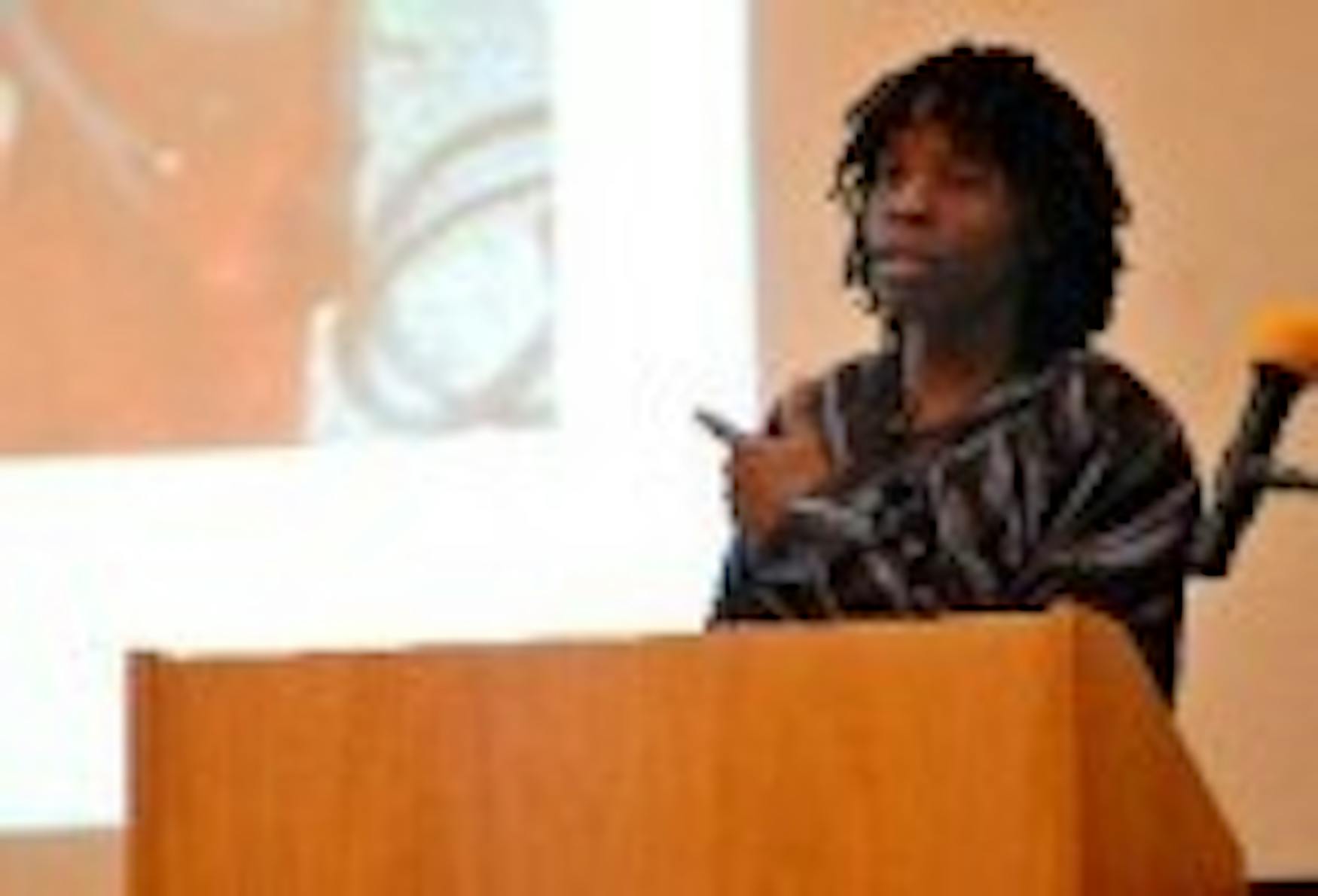Stand up for your right to fight poverty
College students gathered to battle world poverty at a rally at Harvard
The voices of hundreds of people in Harvard's packed Paine Hall echoed loudly and clearly the pledge to take action against global poverty:"Campaigners world-wide will stand up and take action to push their governments for more and better aid, debt cancellation, education for all boys and girls, health care, trade justice, gender equality and public accountability!"
With these words, a group of enthused college students and recent college graduates initiated the Stand Up and Take Action Against Poverty Rally, held Oct. 17.
The conference was part of the Stand Up and Take Action movement, an international initiative in which over 100 million people in more than 100 countries registered to fight poverty at a variety of events focused on the Millennium Development Goals, which are eight goals for international development that the United Nations hopes to achieve by 2015, including decreased child mortality, improved maternal health and the elimination of extreme poverty and hunger. The Oct. 17 rally featured an idea bank contest, in which attendees submitted their ideas to help achieve the Millennium Development Goals.
The event was hosted by the Youth Alliance for Leadership and Development in Africa at Harvard, one of the founding organizations of Millennium Campus Network's, a college student-led organization that aims to eliminate world poverty.
MCN combines the efforts of 11 anti-poverty student groups at seven universities across the country. Sam Vaghar '08 and Seth Werfel '10 created the organization in August 2007, along with students from Brandeis and other Boston-area universities. Will Herberich, a Tufts University junior, is currently MCN's executive director and president.
A variety of student leaders spoke at the event, including members of Circle of Women, a group that seeks to improve girls' formal education in underprivileged areas, and Black Men's Forum.
The conference made a significant impact on at least one of its student attendees.
"Parts of [the conference] I thought were also shocking, as far as how many people there are in the world impoverished," Madeline Barr '12 said. "One of the statistics was one out of [about] seven people . are malnourished."
For MCN organizers, the conference served to strengthen their belief in students' ability to fight poverty.
"You look around at all these talented teens and you think, 'This is something that could really happen,'" Herberich said.
Before founding MCN, Vaghar and Werfel were very active in Positive Foundations, a Brandeis anti-poverty organization.
Vaghar described the moment when he realized that ending poverty would be an attainable goal for the future if people were given the proper resources and tools.
"I read this book called The End of Poverty by Jeffrey Sachs. It didn't just talk about what our problems are, but it talked about real solutions," he said. "So, I basically decided that [helping to eradicate extreme poverty] is my passion, and I want to keep doing this."
Herberich became involved with MCN through his friendship with Vaghar and his involvement in a grassroots organization at Tufts devoted to ending extreme poverty.
MCN's overarching goal is to "bring as many student groups together who are devoted to ending poverty," Herberich said. "[MCN] wants these groups to share resources with each other, and [the Network] wants to share resources with them from connections with the non-profit world and other funding sources."
MCN now has nine directors and several associate directors. The organization held its first conference last April at the Massachusetts Institute of Technology, where about 1000 students showed up.
The conference featured guest speakers and anti-poverty advocates such as Paul Farmer, Jeffrey Sachs, Senator John Edwards D.-Illinois, John Legend and Ira Magaziner. Conference attendees discussed plans for a new global health movement.
According to Gabe Verzino '10, a member of MCN, in the future, MCN plans to organize student groups from different universities into regions all over the country, including New York City and the San Francisco Bay Area.
"The main problem we've seen is that there are students on every single campus that want to tackle global poverty and global disease but they don't have the resources," Vaghar said. "Oftentimes other student groups are doing very similar work, but they're not talking to each other and we want to help fill in those gaps."
Herberich described MCN's extreme passion for fighting world poverty, even at the expense of the members' academic records.
"You have to believe that the sacrifices [you make for the organization] are maybe worth taking a couple of points off your GPA," he said. "If you really want to dive into creating social change, you've got to dive in headfirst; you can't just sort of dip your toes in."
Herberich said he was optimistic about the future of MCN.
"I think five to 10 years from now, when people think of students that are active participants in ending extreme poverty . they will think of MCN."
Editor's note: Gabriel Verzino '10 is a contributing writer.



Please note All comments are eligible for publication in The Justice.